This ordinary, extraordinary life: A Taiwanese woman called Ching-ti [Part 2]
Every star in the sky follows its own orbital path - whether big or small, bright or gloomy. What is the last story we vividly remember? What is the last story that we would tell those around us, if there is still someone around? In this second of a two-part series, Taiwanese art historian Chiang Hsun mourns the passing of his dear friend Ching-ti, recalling her charitable heart in the final years as well as the struggle in her final days.
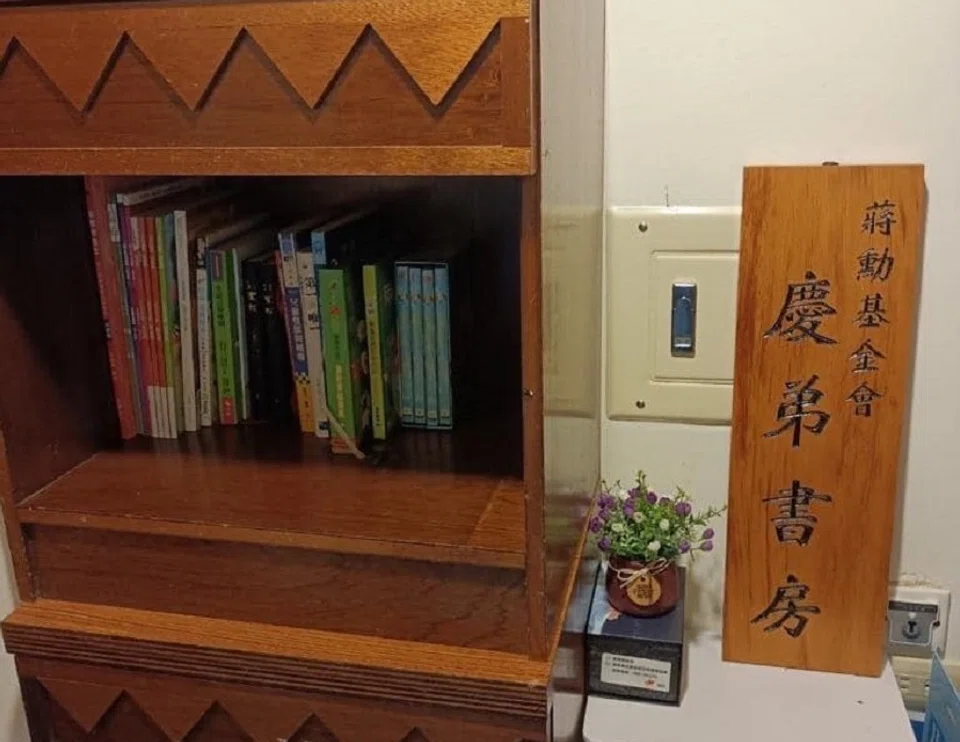
After Ching-ti's husband, Mr Zhuo Xinmiao, passed away in 2006, she and I met up more often. There were many strange occurrences at the Shanghai funeral and I knew she was troubled, but there was nothing I could do to help.
The couple did not have any children, and there could have been many people coveting their huge assets. Ching-ti was smart enough to know why some people wanted to get close to her. But she was elegant and tactful and rarely made people feel uncomfortable, nor did she despise them.
Being wealthy but not overbearing takes wisdom and also portrays one's upbringing. Ching-ti was always gentle and poised.
The same schedule for years
But I guess she must have been worried about the assets her husband had left behind.
She once asked me about this and I confessed that this was not my area of expertise and that I would not have any opinions about it. However, I felt that Mr Zhuo was an outstanding entrepreneur who took half a century to build a successful business in Taipei.
"Is it possible that..." I pondered, "It's not easy to start a business, and it's not easy to end it in the right way and at the right time either."
Taiwan's textbook market had changed; with the advent of the digital era, the traditional publishing industry would quickly transform. These could all be urgent problems in the transformation of old bookstores.
I overlooked her emotional attachment to the sector. These businesses were not purely businesses, but had connected her and Mr Zhuo together for a lifetime.
Ching-ti was hard on herself when it came to cleanliness, but she treated those around her with magnanimity and benevolence.
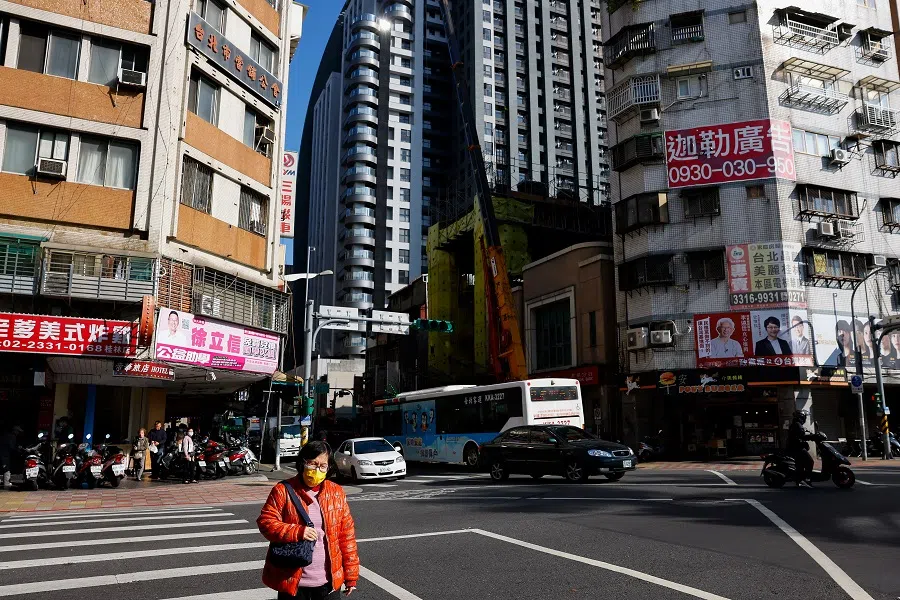
The couple had the same schedule almost every day. At around 9 am, their chauffeur would drive them to the bookstore in a gold Mercedes-Benz S500 and they would drink coffee in a sunny corner on the first floor. The staff would prepare a slice of toast for Ching-ti. In the afternoon, they would eat lunch at Marco Polo on Wuchang Street along Chongqing South Road. Ching-ti had a small appetite and normally ate a few slices of chicory salad. Their bookstore and restaurant staff would report on some operational matters, and they would approve some invoices.
After lunch, their chauffeur would ferry them back for a rest at their penthouse in a building on Ren'ai Circle. Ching-ti did not take afternoon naps. She liked to wash her blouses and T-shirts in water and lay them flat on a towel to dry.
She had a helper at home, but she enjoyed doing things herself, especially when it comes to her intimate apparel, which she rarely allowed others to touch.
I also found out that Ching-ti was a clean freak. Once on a train from Shanghai to Beijing, she did not drink a sip of water throughout the hours-long ride because she refused to use the public restroom.
Every star in the sky follows its own orbital path - whether big or small, bright or gloomy. Ching-ti was hard on herself when it came to cleanliness, but she treated those around her with magnanimity and benevolence.
It is the loneliness of losing a partner.
Our secret memory
She also maintained the scale of the events that her late husband used to host, and often organised gatherings for bookstore publishers, writers or relatives and friends. She would book private rooms in high-end hotel restaurants and host a banquet for one or two tables of guests, ordering the most expensive dishes and being extremely generous with money. The restaurant managers also served the guests very well.
I am curious about what restaurants in high-end hotels would serve, but that curiosity does not last long. I would not want to eat there every day.
The banquets that Ching-ti hosted were always a spectacle but she did not eat much herself. She often sat on the side, watching the fun with a smile. If it was a gathering of more than 20 people, it would often get chaotic and noisy, and while it's noisy, it's especially lonely.
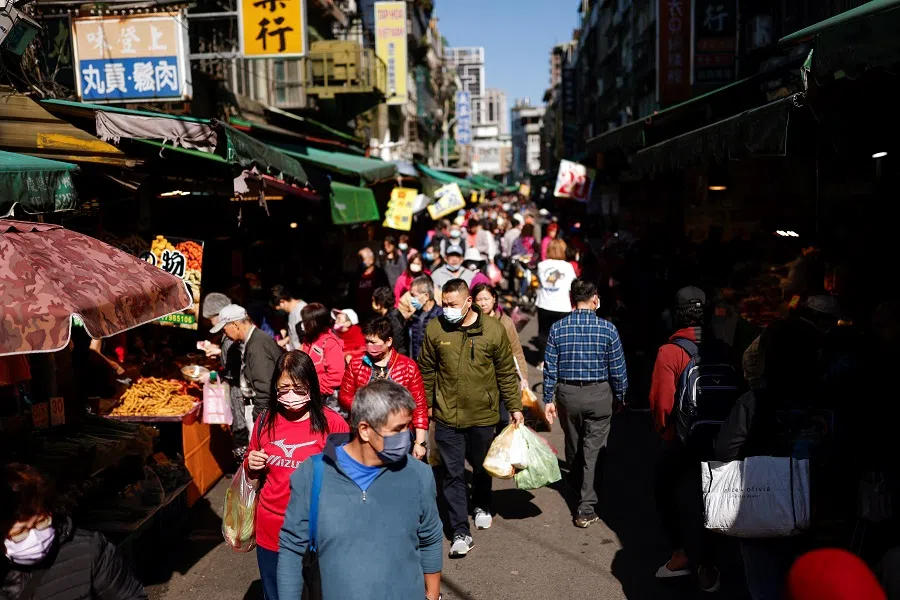
It is the loneliness of losing a partner. Take for example the karaoke system at Ching-ti's residence on Ren'ai Road. When Mr Zhuo was still around, their home would often be filled with people singing their hearts out. But after he passed away, the machine remained and the singing stopped.
After the end of a banquet, I would sometimes accompany Ching-ti back home. If it was winter, there would always be a small stall selling roasted chestnuts under a veranda on the southwest corner of Ren'ai Circle - an old man on his own, packing roasted chestnuts into small paper bags. Ching-ti had already gotten into the habit of asking her chauffeur to pull over whenever she saw the old man. She would ask him to pack all his chestnuts for her and urged, "Go home early. It's so cold."
Sometimes when there were not that many bags of chestnuts, she would get her chauffeur to go home first and I would carry the hot and fragrant bags with her. We would cross Dunhua South Road and walk back to her home at the southeast corner. We had so much chestnuts and she would ask me to share them with everyone.
She was never clear about who "everyone" was, but we seemed to have a tacit understanding that "everyone" referred to many people; people whom neither Ching-ti nor I may necessarily know.
In 1990 when Mr Zhuo was still alive, she asked me to write books for Tung Hua, "Write about art history; about Eastern and Western art; write for the children."
She inspired me - could I share "the history of beauty" with the laymen from a different perspective without the use of terminologies and jargon?
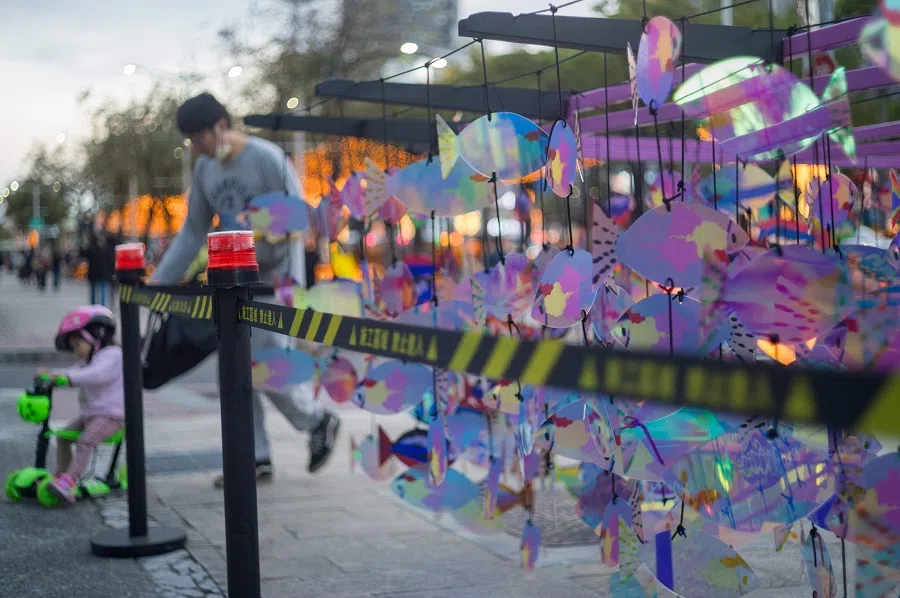
Tung Hua textbooks mostly touched on science and technology, social sciences and finance; few touched on liberal arts. I taught art history at the university; in professional circles, professors and students discussed Cubism, which Pablo Picasso invented in 1907. Everyone in the professional circle knows about the term "Cubism". But "Cubism" may be meaningless to the "children" or "everyone" that Ching-ti talked about.
She inspired me - could I share "the history of beauty" with the laymen from a different perspective without the use of terminologies and jargon?
Between 1990 and 1992, Tung Hua Books published two of my books, To Everyone's Chinese Art History (《写给大家的中国美术史》) and To Everyone's Western Art History (《写给大家的西洋美术史》). I tried as much as possible to make art history approachable through conversational writing. The word "everyone" in the title is a secret memory between Ching-ti and me - that small stall selling roasted chestnuts at Ren'ai Circle in winter.
Our own chores and enjoyments
We had shared memories but also some very discordant ones, like the orbital paths of different stars - sometimes they are near to each other but other times they are far apart, like strangers with nothing to do with each other.
I grew up in the old district of Dalongdong (大龙峒) in Taipei, a little enclave of the Tong'an (同安) people, and have always had a soft spot for the city's old districts. Even after Taipei developed a novel and modern Eastern District, I still loved visiting Dadaocheng (大稻埕) to see the old commercial alleyways and old residential styles. The dependence of the traditional residents on the Tamsui River, as well as the temples, folk beliefs and businesses of the common people, have a lasting vitality that may sometimes be forgotten due to transportation or administrative planning. Yet, the memories of the streets and alleyways are lasting and deep and will never vanish completely.
I brought Ching-ti to Dadaocheng to visit a few dilapidated and abandoned residences, and she liked the experience too. When I saw a stall selling pork intestine vermicelli at the entrance of a temple, I immediately sat down, then I realised that Ching-ti was just standing on the side with an awkward smile.
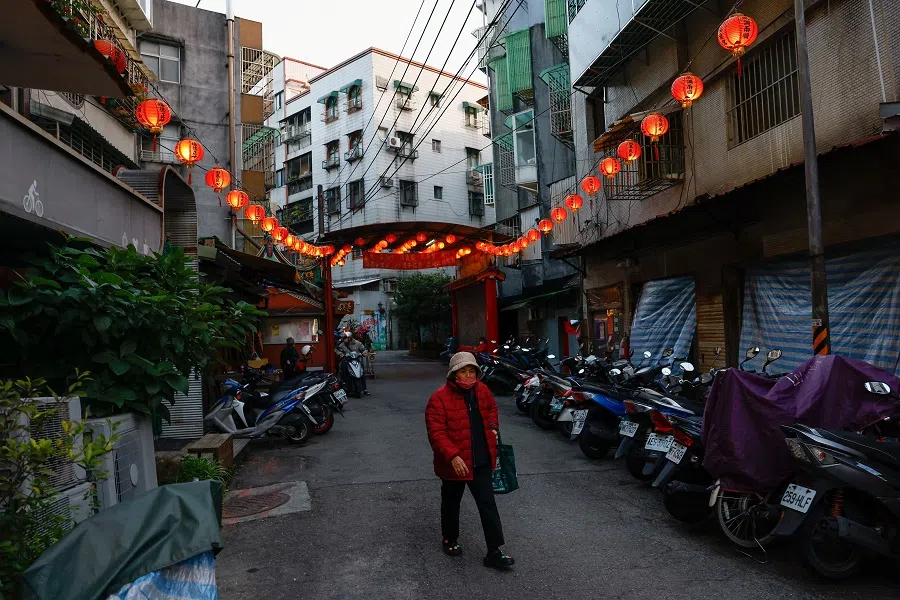
"Ah, she doesn't eat at roadside stalls." I made a mental note, blaming myself for being too careless and inconsiderate. Even if she, being a Sagittarian, was open-minded and easygoing, there were still some things that she would not compromise on.
That was the first time I warned myself, "Ching-ti does not eat at roadside stalls."
I continued to accompany Ching-ti to high-end restaurants where she entertained her guests, and would sometimes feel that these gatherings were such a chore. In the same way, I should also put myself in her shoes and understand that sitting down and eating at a roadside stall was also a chore for her.
Our lives are so different; we each had our own chores and our own enjoyments.
We once went on a trip to Paris together. I stayed at a bed and breakfast while Ching-ti stayed at a hotel. We visited art museums, shopped and had a good time together. Whenever I am back in Paris, I do not feel that I have returned to a place but that I have returned to when I was 25 years old. Ripped jeans, a pair of klomps, a poetry collection in my pocket, a bottle of red wine and two sandwiches. I could sit by the Seine the whole day, reading poems, staring into space or watching a street demonstration. Anything goes.
Out of goodwill, Ching-ti always brought me and my students to expensive restaurants. I felt as if I was betraying my 25-year-old self - and it struck me at that moment that I was also a "clean freak". I was afraid that the waiter at La Tour d'Argent would tell me the number assigned to the duck I was served, or that he would nonchalantly reveal that the person he had served earlier was Romy Schneider.
We think about the songs of our youth over and over again, but time is always slipping away and the singer has passed away; the songs of my youth still ring in my heart.

Perhaps this has nothing to do with horoscopes and is simply the habits of a social class. But it just so happened that my youthful memories in Paris are so Bohemian - I felt that I would rather turn into an ugly toad than be thrown against the wall and turned into a vulgar prince.
Poster of Lennon and Yoko
I learnt to admire Ching-ti from a distance; she started inviting her friends on luxury cruise trips to the Mediterranean Sea or the Rhine more frequently, and also visited Saint Petersburg. I did not attend any of those. She told me about everything that happened on the ship, like a surprise captain's ball. She was indeed elated and even brought up the fact that she had attended night school at a university after she got married, and how much she had admired Lennon back then.
"John Lennon?"
She nodded. "I like Yoko too," she said shyly.
Was that a little secret memory of hers in her youthful days? She told me about a poster of Lennon and Yoko that she hung up back in the day.
"I was so sad when he was assassinated."
His assassination? That was something that happened in 1980. I hummed in my heart "I Want to Hold Your Hand", "Hey Jude" and "Let It Be".
We think about the songs of our youth over and over again, but time is always slipping away and the singer has passed away; the songs of my youth still ring in my heart.
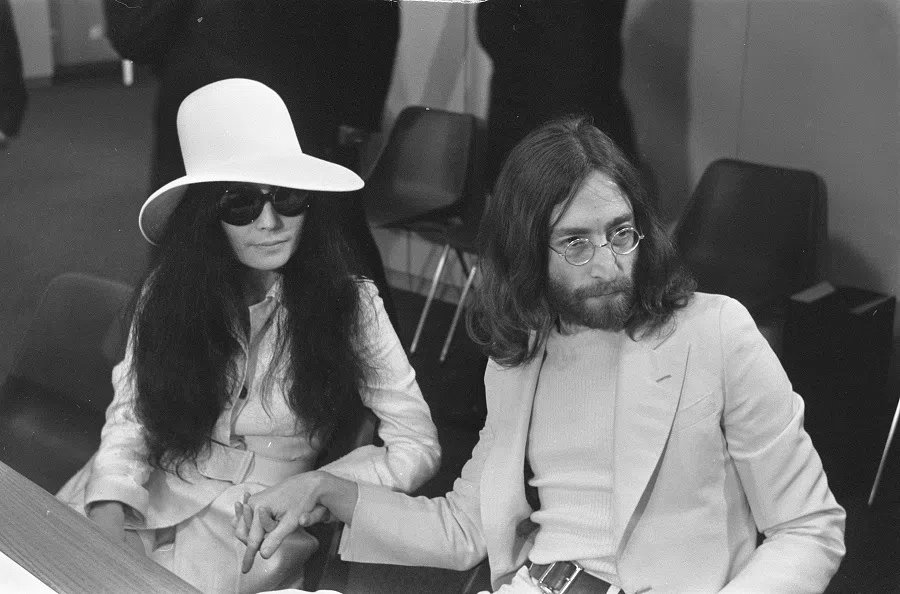
It is difficult for us to change anything, just like Ching-ti's fixed schedule. At the same time every day, her chauffeur picks her up from Ren'ai Circle and sends her to Tung Hua Books opposite the Presidential Office Building. The shadow of the giant camphor trees on both sides of Ren'ai Road brushes past the car windows; the car makes a turn at Ketagalan Boulevard and arrives at Tung Hua Books on Section 1, Chongqing South Road.
The chauffeur opens the door, the staff comes out to greet their boss, who pleasantly greets each person. She sits at her regular seat by the window, sometimes with a friend, sometimes alone. Maybe she felt that Mr Zhuo was always by her side, and that he was watching the well-cared-for Wallich's glorybower outside the window with her as always; its clusters of flowers looking like many fluttering butterflies.
We may sometimes have the illusion that our days will stay as they are forever, as if a black-and-white photograph can still be as bright as ever as long as they are re-coloured.
But it does not work that way. It was not until I heard that Ching-ti had cancer that I realised she was already over 80 years old.
She was in good shape and always moved slowly, so you would not think that she had fallen ill. Even during the final stages of lung cancer, she did not undergo chemotherapy or radiotherapy and only took a targeted cancer drug a day. One pill costs NT$13,000 (US$410), but they were effective and she did not appear ill at all.
Ching-ti was lucky - she was treated by the best medical team and her cancer had always stayed stable.
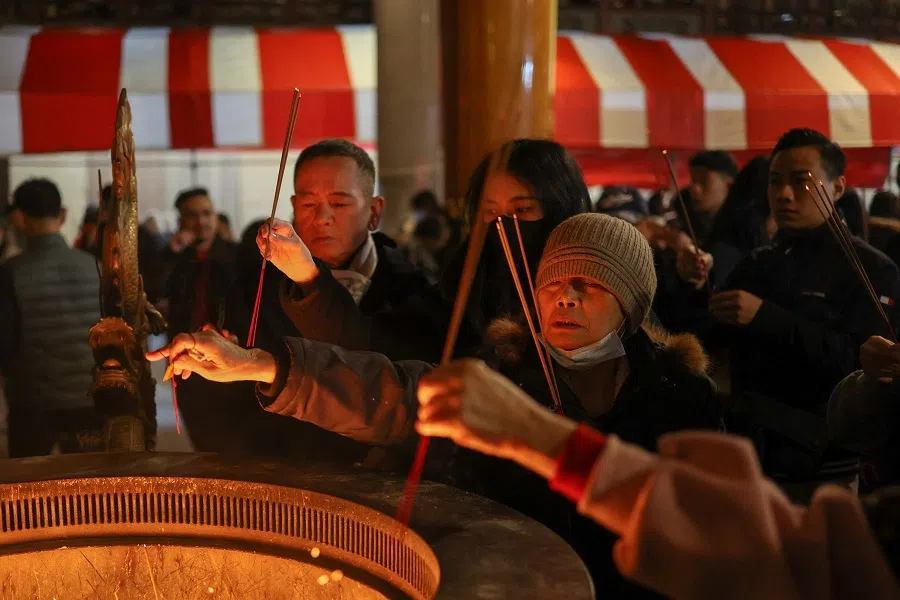
After I heard that she had cancer, I gave a lecture on the Diamond Sutra on the second floor of Tung Hua Books. Many old friends attended the lecture; everyone missed listening to Dream of the Red Chamber in that space, like how Ching-ti always remembered the poster of Lennon and Yoko hanging on the wall.
The last story we tell
I thought that the Diamond Sutra was a reminder of Ching-ti's farewell, but it appeared that I had worried too much - Ching-ti's condition improved and she looked nothing like an end-stage cancer patient.
But her cancer still led her to make certain decisions. While her body and mind were still intact, she made arrangements for her assets and established a foundation under her husband's name "Xin Miao", which provided scholarships to students at more than ten universities. One day, she told me with great satisfaction, "The transfer of assets to charity is about 80% complete."
She also gradually closed her businesses in Shanghai; she was always generous to her employees and distributed many of her properties to them. Due to the Covid-19 pandemic, the plan to donate a piece of land to Fudan University fell through. She brooded over it and mentioned it to me many times. But I felt that she should not take the risk in the midst of a pandemic given her physical condition.
Although that could be a matter involving hundreds of millions of RMB, and she wanted to do something meaningful, all events are linked to their causal factors and it is perhaps meaningless to force things.
During the pandemic, I spent more time with her at her residence on Ren'ai Road. As long as I have time, I would always have dinner with her, bringing along some of her favourite home-cooked Jiangsu and Zhejiang dishes, such as taro and stinky tofu. The students whom she had treated very well were also thoughtful and would often come along with me to have dinner with her. It turned out that her final days were not spent entirely alone either.
I thought to myself, "There are always two stone lions at the entrance of a temple. Is it because they are steadfast in their role as guardians?"
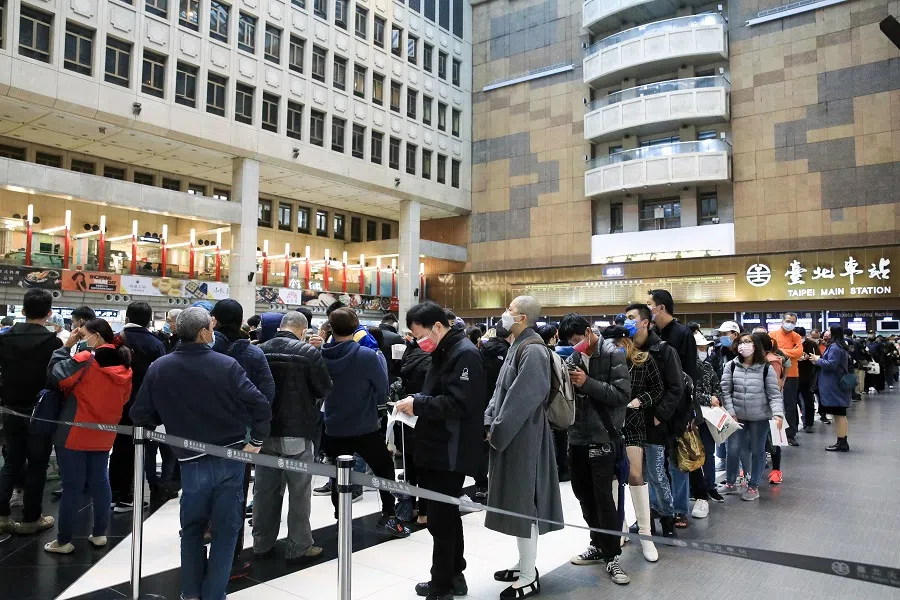
Two Leo friends helped her a lot during her later years: one arranged for a Filipino helper to take care of her, while the other often took her to the park to get some sun. I thought to myself, "There are always two stone lions at the entrance of a temple. Is it because they are steadfast in their role as guardians?"
In her final days, Ching-ti's helper Ali was especially thoughtful as well. When Ching-ti contracted Covid-19 and the hospital specified that patients could only be accompanied by one person, Ali immediately packed her bag without hesitation and spent a week in the hospital with Ching-ti. Amid the pandemic when everyone was anxious and cared about protecting themselves, I witnessed a foreign helper who had no blood ties with Ching-ti unwaveringly stayed by her side, boldly braving the risk of infection.
Ching-ti contracted Covid-19 twice and caring friends were all worried that she would not survive them. Yet, she had a strong will to live and was discharged from the hospital safe and sound both times.
There were many things to be thankful for during the pandemic, but I also saw good and evil, and the cruelty and warmth of humanity.
Ching-ti grew thinner and hardly ate anything anymore. Her memory was also deteriorating. During dinner, she recalled the time when she was five-years-old in Beijing. She had caught a cold and her mother gave her two copper coins and asked her to go to Tong Ren Tang (a Chinese pharmaceutical company) at the entrance of the alley to buy some "xiaoqingpi hulian gancao" (小青皮胡琏甘草, unripe mandarin peel, rhizoma picrorhizae and Chinese liquorice). She said the words clearly and enunciated each character perfectly. She stood in front of the towering counter at the traditional Chinese medicine pharmacy and could not see the shopkeeper. But she loudly said "xiaoqingpi hulian gancao" and managed to buy the medicine.
What is the last story we vividly remember? What is the last story that we would tell those around us, if there is still someone around?
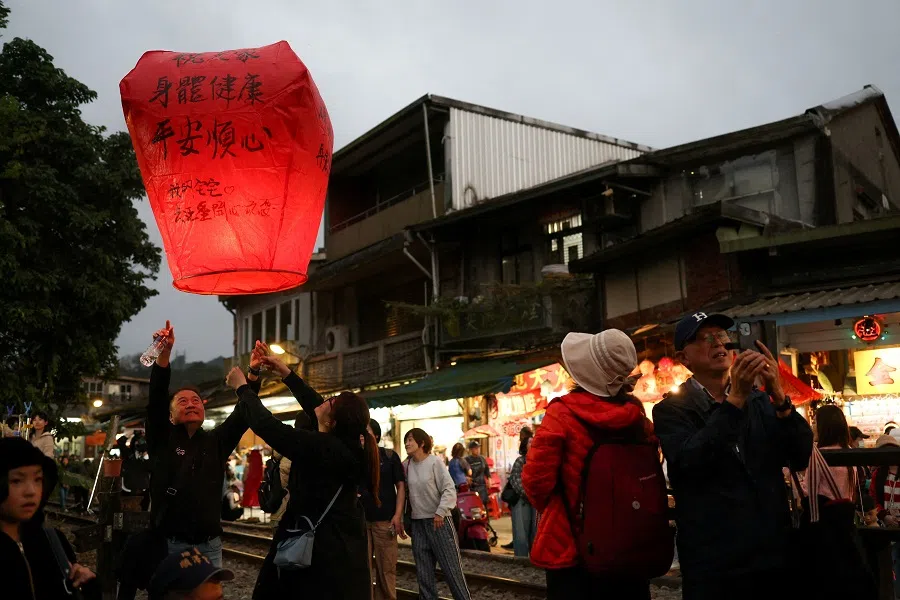
Was that an important memory of her childhood? She repeated it a dozen times at night. Not long after she finished recounting the story, she would start all over again.
Each time she told the story was as fresh and joyful as the first time she said it.
When we take care of someone who is losing their memory, it is as if we are learning about our own memory loss.
What is the last story we vividly remember? What is the last story that we would tell those around us, if there is still someone around?
My students were still young, but they understood that the elder whom they respected and loved was losing her memory.
They searched online for songs from Tsai Chin, Fei Yu-ching, Teresa Teng and even Bai Guang, as if hoping to connect the memories from different generations through those old melodies. But what I did not tell these kind and affectionate students was, "The Zhuo Mama whom you all love listens to John Lennon of the Beatles!"
Haunted by nightmares
Separated by generations of distant galaxies, it is difficult to hear the delicate dialogues among the stars, which could often be monologues or misinterpreted signals.
I seemed to be prepared for Ching-ti to slowly pass away in her childhood memories, like the arrow shot by Sagittarius, vanishing into the vast and unsearchable galaxy.

Yet, things did not turn out as planned - one of the last things that happened in her life jolted her awake from her child-like innocence.
It was truly unbearable for me. She died of illness in July at the National Taiwan University Hospital. I looked at the diary and realised that the first time she told me that someone was out to harm her was on 17 April.
I initially thought that it was the case of a sickly elderly having a nightmare. But she got increasingly nervous and her memory got better instead. She repeatedly stressed that all her assets must be given to the foundation to help students in remote and isolated areas and to prevent private possession.
I realised that her anxiety was not illusory but in fact real, and suddenly recalled the foot-stomping, chest-thumping scene at Mr Zhuo's funeral in Shanghai.
She mentioned two names - a "relative" and an old employee who had worked for them for three decades. Both had threatened her to stamp her seal on some documents.
"What did they ask you to stamp?"
"I don't know," she said dejectedly. "There was a stack of documents, and I couldn't see clearly."
That is one of my most painful memories of Ching-ti. It was as if an infant who was just about to sleep peacefully was suddenly held in a chokehold and unable to breathe, slipping into an intense struggle and nightmare.

I felt an elderly's helplessness at that moment. She was 88 years old, at the last stage of cancer and was weak and vulnerable. She could not protect herself at all.
She suddenly became lucid and wanted to find her lawyer. I wanted to inform her chauffeur, but she resolutely refused, saying, "No outsider should know about this."
That is one of my most painful memories of Ching-ti. It was as if an infant who was just about to sleep peacefully was suddenly held in a chokehold and unable to breathe, slipping into an intense struggle and nightmare.
She found her lawyer and insisted on making a video and a written record to reiterate that her assets must be transferred to the foundation for charity.
From then on, she was haunted by nightmares whether day or night, and her cancer cells, which had always remained stable, suddenly grew rapidly.
A 'relative' out to get her
Because of her uneasiness, she dared not trust even those closest to her. Many friends and students knew about this and took turns coming to her home to accompany her. But she was still anxious. She often grabbed my hand and said, "I invited a ghost into the house."
It would have been such a blessing to leave the earth in one's childhood memories. Yet, I was so surprised that Ching-ti, who was never wary of others, suddenly became so guarded and anxious. I still hoped that she just had too many delusions, but the "ghost" that she mentioned seemed to have really appeared.
A man would suddenly come into the house and sit at a corner scrolling on his phone, without greeting anyone.
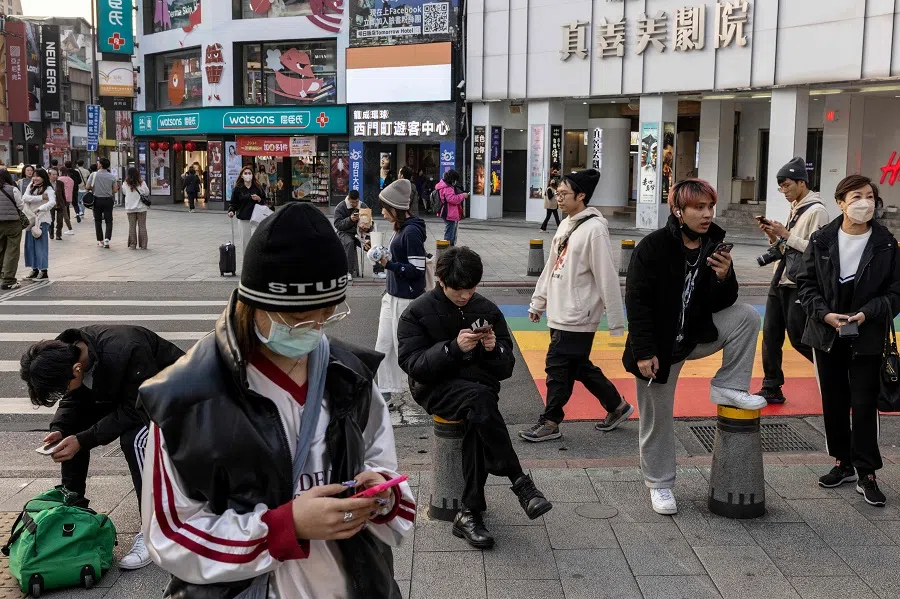
Was this the same person who cried and rolled around on the floor at Mr Zhuo's funeral in Shanghai? I could not remember, but I felt Ching-ti trembling as she held onto my hand whenever this man appeared.
She and the man seemed like complete strangers. They did not speak to each other and the air was tense. It was like watching a horror film.
One day in early May, that man suddenly went bonkers. He pointed at the dozen people keeping Ching-ti company and said, "All of you get out. I'm the only one here who's her relative."
The word "relative" was spoken with a strong Shanghainese accent. The helpers could not understand what was said and stayed hidden. They wanted to care for the elderly whom they looked after every day, but they did not know what was going on.
Ching-ti held onto my hand so tightly and I dared not move.
Someone called the district's police station and two police officers arrived shortly. They were burly and calm, standing still without saying a word. The man with the Shanghainese accent complained to the police officers and repeatedly said that he was "the only relative here".
I was shocked by the police officers' composure. They gently asked Ching-ti, "Who do you want to leave and who do you want stay?"
Ching-ti, who was cowering in terror, firmly said, "Chiang laoshi (老师, teacher) can stay."
The police officers immediately sprung into action, asking the man who claimed to be a "relative" to leave.

I felt very sad and also felt sad for Ching-ti. What is the use of "relatives"? They may not even be as thoughtful and caring as foreign domestic helpers. I really wanted to ask that relative, "Where were you when Ching-ti was hospitalised twice due to Covid-19?"
I was most impressed with the two police officers who were young, calm and had the ability to handle things quickly and efficiently.
When I was finally able to breathe a sigh of relief, I praised them, "Both of you are so calm."
They flashed a faint smile and said, "Such things happen every other day in Ren'ai Circle. Some even involve their biological children; all because of their inheritance."
They refrained from saying more, but I understood. This was not just the story of the Sagittarian Ching-ti; in expensive neighbourhoods, countless greedy people have their eyes on their inheritance when the first generation grows old and do not have a clear will. It may perhaps have nothing to do with "children" or "relatives"; I reminded myself to get my "pre-mortem will" ready early. I felt like telling Ching-ti, "We could in fact be the condoners of human greed."
The relative took everything in Shanghai and even continued to hunt everyone down in Taipei, giving an elderly one last scare. What is the use of "relatives"?
Ching-ti's condition never improved and her cancer cells never went down. We showed her a protection order from the police, but she was still haunted by nightmares day and night.
A name that lives on
Ching-ti passed away in the hospital while I was down with Covid-19. I did not bid her my last farewell.
I would like to thank Principal Cheng Han-wen, who dedicated his whole life to the education of students in the remote areas of Taitung, for helping me set up three study rooms in her name (庆弟书房) in the indigenous villages. Ching-ti had always done charity work under her husband's name Xinmiao, including a donation of over NT$700 million to an elderly centre in New Taipei City.
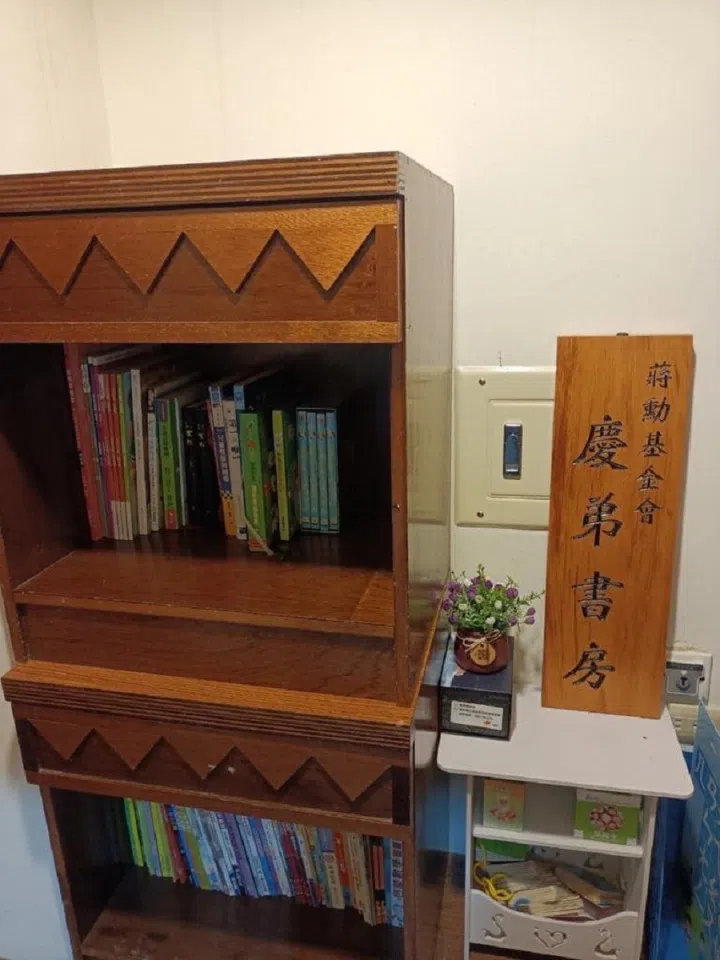
I hope that the name "Ching-ti" can live on and take care of the many underprivileged children in the remote and indigenous villages that she cared about. "Everyone" can read books, listen to music and appreciate beautiful things under the name "Ching-ti".
This article was first published in Chinese on United Daily News as "一個女射手的懷念(二)上篇、下篇".
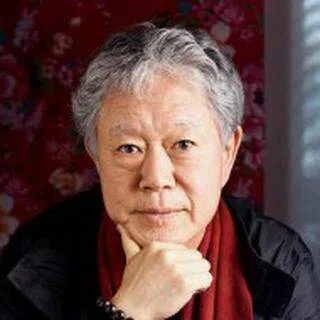



![[Big read] When the Arctic opens, what happens to Singapore?](https://cassette.sphdigital.com.sg/image/thinkchina/da65edebca34645c711c55e83e9877109b3c53847ebb1305573974651df1d13a)
